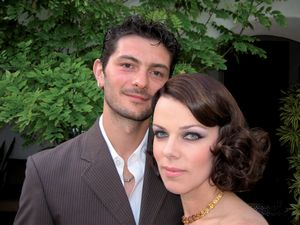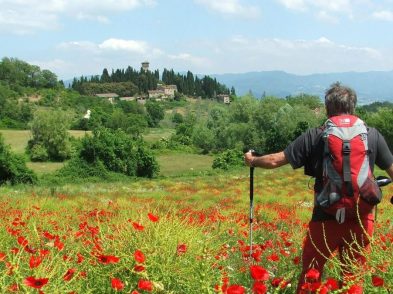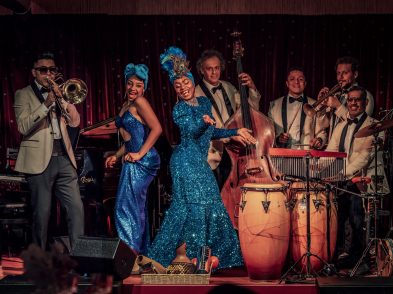Proverbial wisdom about early birds catching worms doesn’t apply to boar. I am used to fox hunting in the US, where you have to be ready to go at dawn. Not so with boar hunting; at nine am the hunters were just starting to arrive.
The countryside in Maremma was spectacular, but for me the most interesting scenery was the parade of men. From seven-year-old Luca, there for his first hunt, to 80-year-old Andrea, every one of them was magnificent in my eyes. Their hunting garb featured greens and browns, luscious cashmeres, scarves and hats, all layered with elegance. I imagine if Armani had been asked to style a hunt for a film, it wouldn’t have been as perfect. Each man lifted my hand to his lips in greeting. And what made it even more exquisite was the fact that in a sea of 70 men, I was one of only four women.
A membership costs approximately 1000 euro for two hunts a year. The boar are fed year-round so that they stay in the area. Each hunter is assigned a different area through a lottery system. Groups leave either by a type of hay wagon, or by foot to their individual numbered stand. The group leader then makes certain each hunter finds their spot and offers the traditional words for good luck: “in bocca al lupo” – which literally translates to ‘in the mouth of the wolf’ and must be answered with “crepi”, may the wolf die.
Because Francesco had organised the hunt he was able to beat the lottery and pick a prime spot (on top of a small hill, with a 360 degree view of the hills, forests and sea) for himself and me. We climbed the ladder, onto our tree house (approx. 4 ’by 4’ platform with railing and bench for sitting and gear), and waited for the horn to sound for the hunt to begin. After helping me find my bearings, he took a machete and climbed down again to clear some of the brush around our site so there was more visibility of the animals as they ran by.
Once the hunt started, groups of men – called “beaters” – with 50 dogs in each group, track the boars and “beat” them out of the bush. “Boars are hunted with your ears,” Francesco explained. “You hear the dogs barking louder as they approach and listen for them to become more frantic as soon as they are on the tail of a boar.” The sound of a boar running is heavier than yet, but I understand everything. If you blame the loud and perfumed American woman for not shooting a boar I will know!”
So we waited, listened and heard a boar come very near. Francesco pointed the rifle where he thought it would appear. Hunters have to be ready to shoot the second the boar comes into sight. There’s no time to take aim once you see the boar. We waited, and aimed and listened for four hours. My sense of urgent excitement dissipated after the first hour and I settled in to enjoy the scenery and the company of my host.
“I like hunting boars because it is not a sure thing,” Francesco explained. “It takes skill and patience. You have to be attentive and listen. It’s almost meditative.”
Suddenly, he put his finger to his lips and lifted his gun. Even I could detect the unique sound of the boar’s movement. I couldn’t see it but I knew it was close. Just as Francesco poised to shoot, the boar changed direction and disappeared. Francesco’s reaction startled me. He grabbed me by the shoulders and sniffed my neck. “Are you wearing perfume?” he demanded. Then I understood. Luckily, I had been forewarned not to wear any perfume or even shower before the hunt. Although hunters use their ears to hunt, the boar’s survival sensation is its nose and one ‘whiff’ of human odour is enough to send it in the opposite direction.
Though we never hit a boar that day, we heard shooting all around us. As we walked back down the road, I asked him if now was the time when everyone got to tell their hunting stories of how they caught, shot or missed the boar (married to a golfer, I am familiar with this custom). Francesco nodded. That was exactly what would happened. “Francesco,” I warned, “I may not speak Italian that well
We arrived back at the camp and I felt like a soldier coming back from war. We sat down to long tables of incredible food, tired but in great spirits. The last part of the hunt consisted of watching the 48 boars that had been shot that day being hung, skinned and cut up. The beaters are paid in meat and then the hunters can have what they want. Whatever’s left over is sold to local butchers. I left satiated—with food, wonder and friendship. Although I had mixed feelings about not seeing an actual kill, I was filled with gratitude for the access I had been given to such a rich and authentic experience.







